
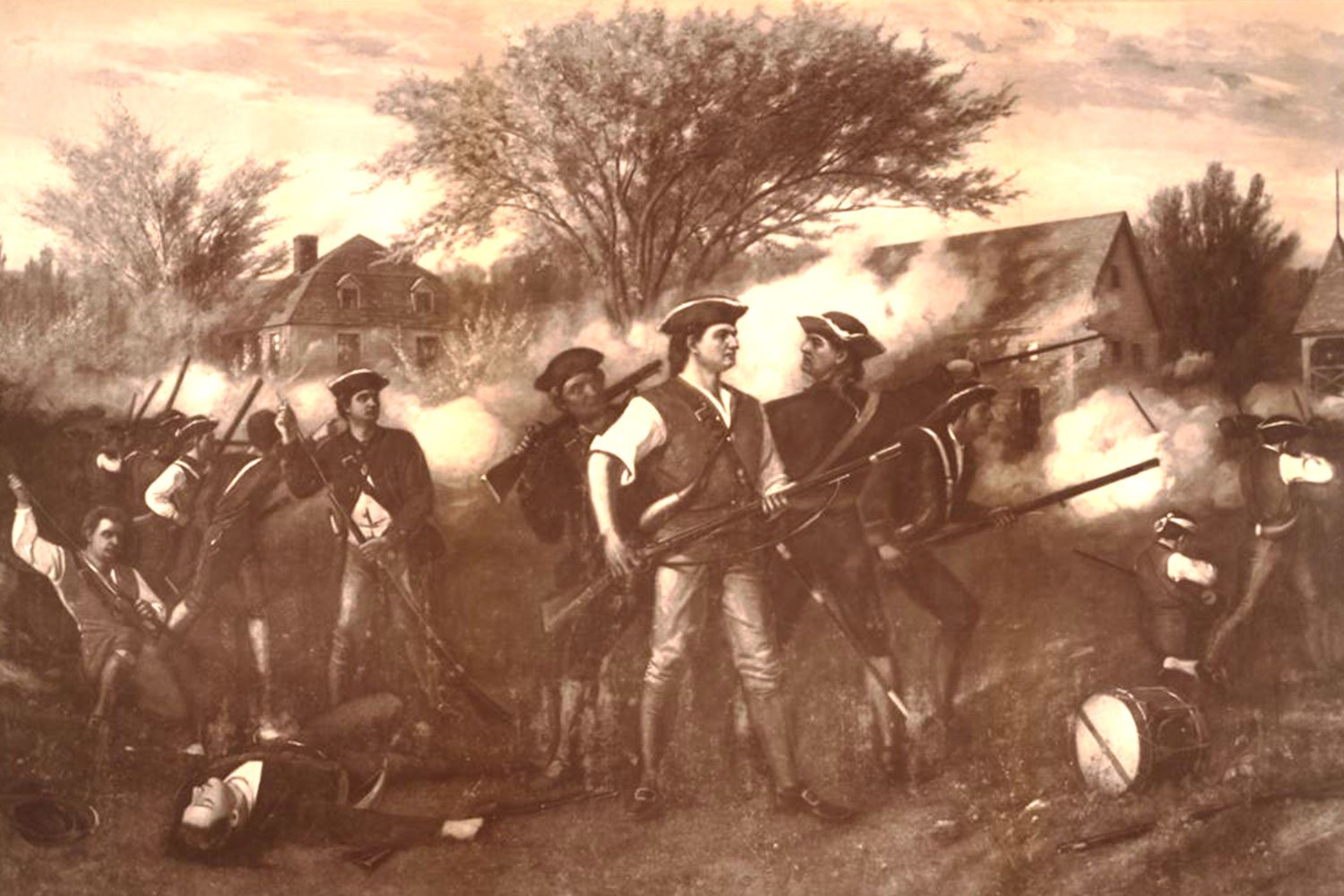
Boston Under Siege
At the beginning of April 1775, the British army was the unquestioned master-of-affairs in Massachusetts. Incredibly, in less than a year, England, the most powerful nation on earth, would be forced out of Boston, one of their most important colonial cities, by American militiamen.
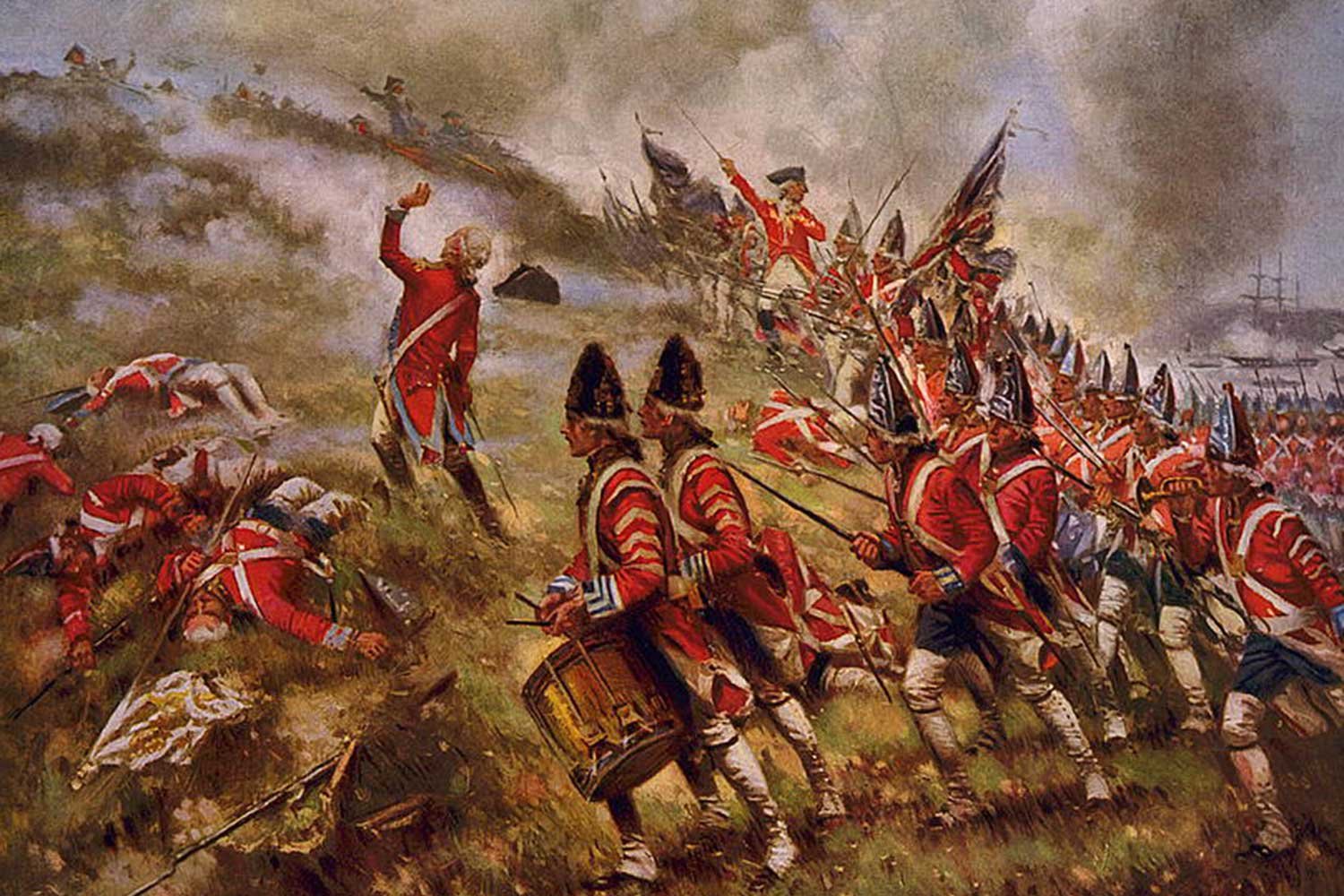
The Battle of Bunker Hill
The Battle of Bunker Hill, fought on June 17, 1775, is one of the most iconic and familiar events in American history. It was our first pitched battle against the British army and, although technically a defeat, the efforts of the American militiamen were inspirational.
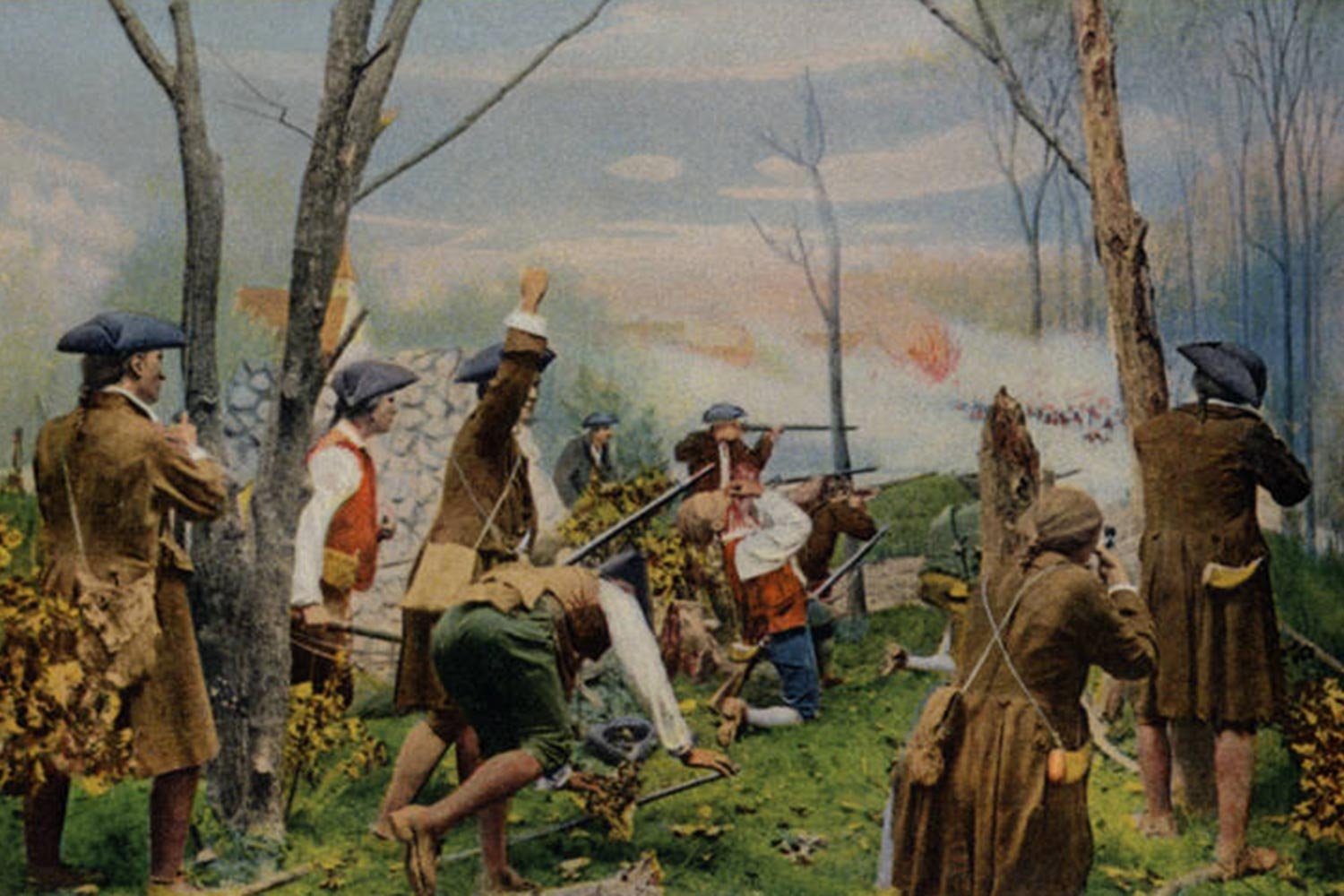
Lexington and Concord: The Shot Heard Round the World
The fight between our Minutemen and the British regulars at Lexington was over in a matter of minutes, and the British began the seven-mile march to Concord. By now, reports of the shooting had reached the minutemen in the surrounding area, and they began to assemble. A bad day for the British was about to begin.
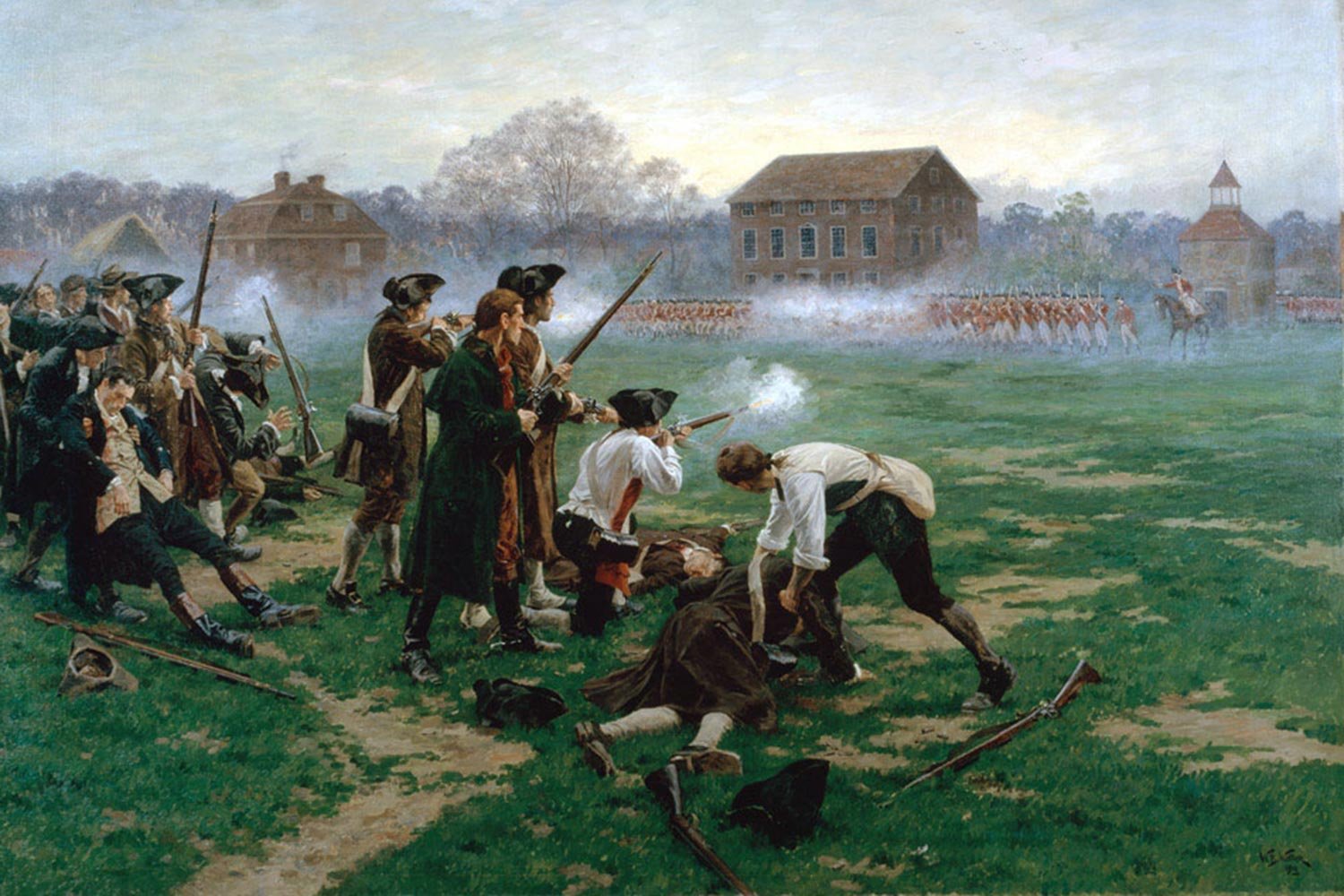
Lexington and Concord: Minutemen in Arms
The Battles of Lexington and Concord, fought on April 19, 1775, marked the start of America’s war for independence from England. The story of that fight is an inspiring account of how everyday Americans came together to resist the power of Great Britain.
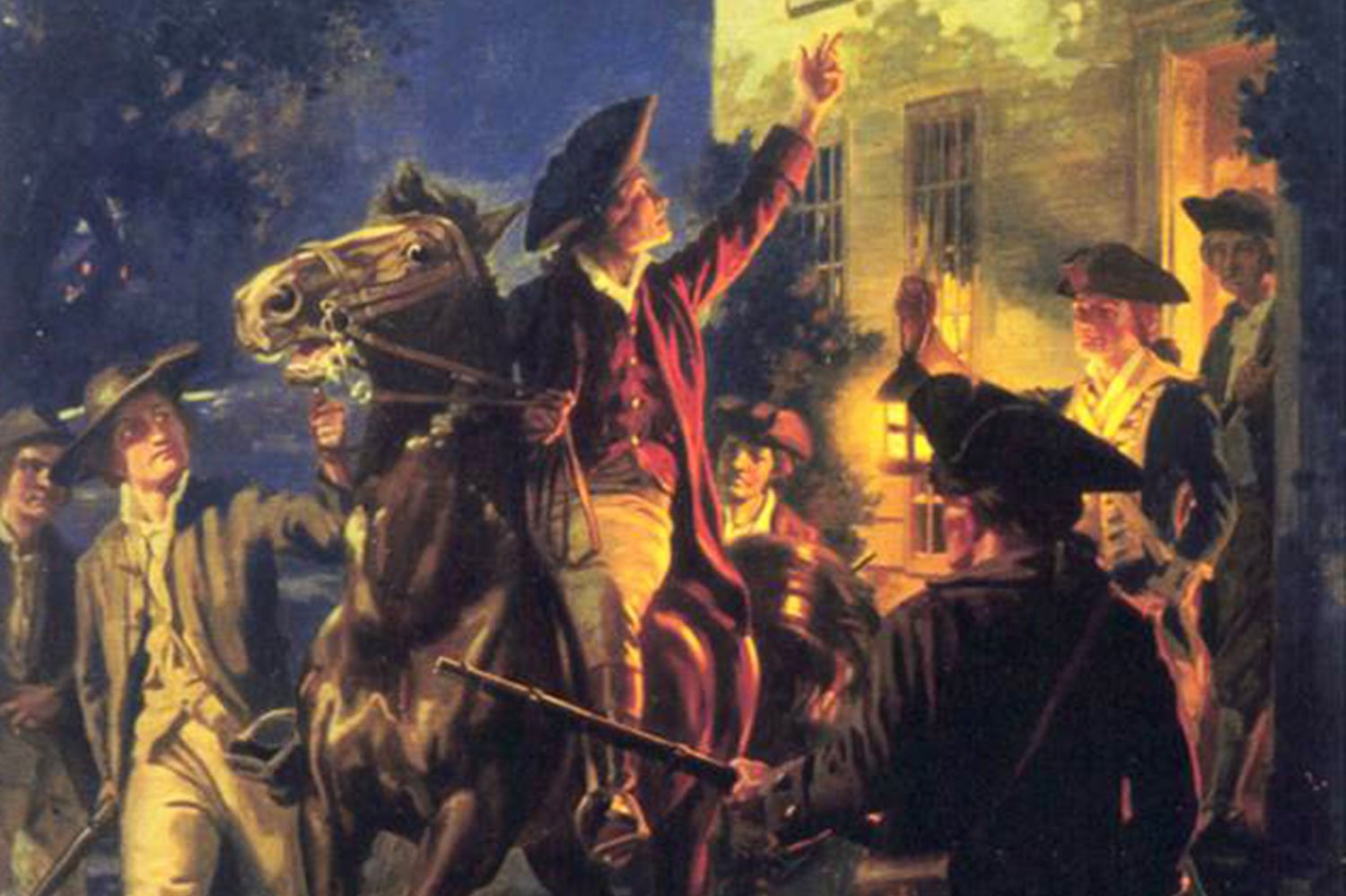
The Legacy of Paul Revere
Paul Revere began his famous ride from Boston to Concord, around 11:00pm on April 18, 1775, informing the residents and militiamen that the British were on the march. He arrived in Lexington, a town about 10 miles from Boston, around midnight.
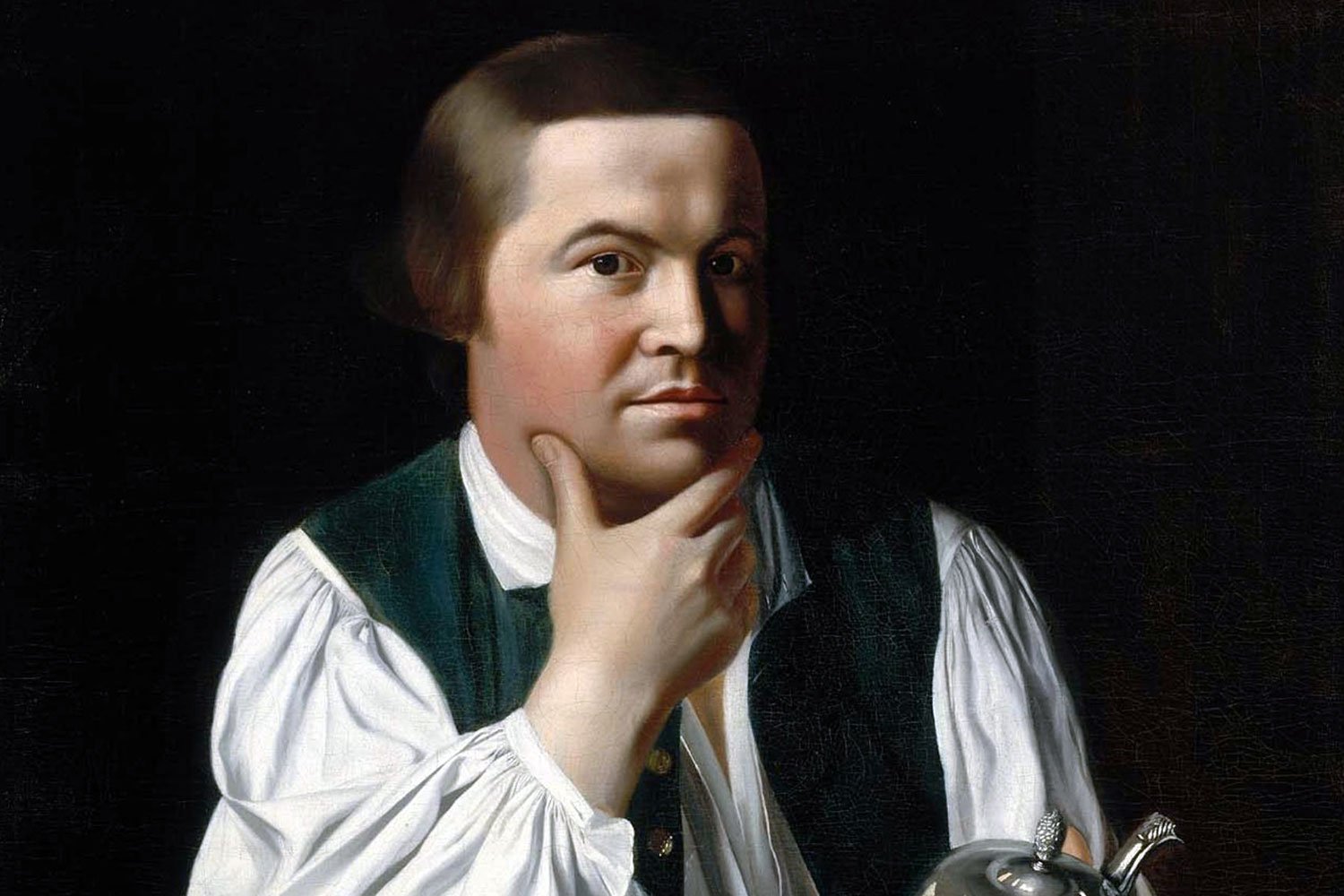
The Midnight Ride of Paul Revere
The story of Paul Revere and his Midnight Ride is one of the many fascinating subjects of the grand American past. Taking place in conjunction with the Battles of Lexington and Concord, on April 19, 1775, the tale has passed down from generation to generation.
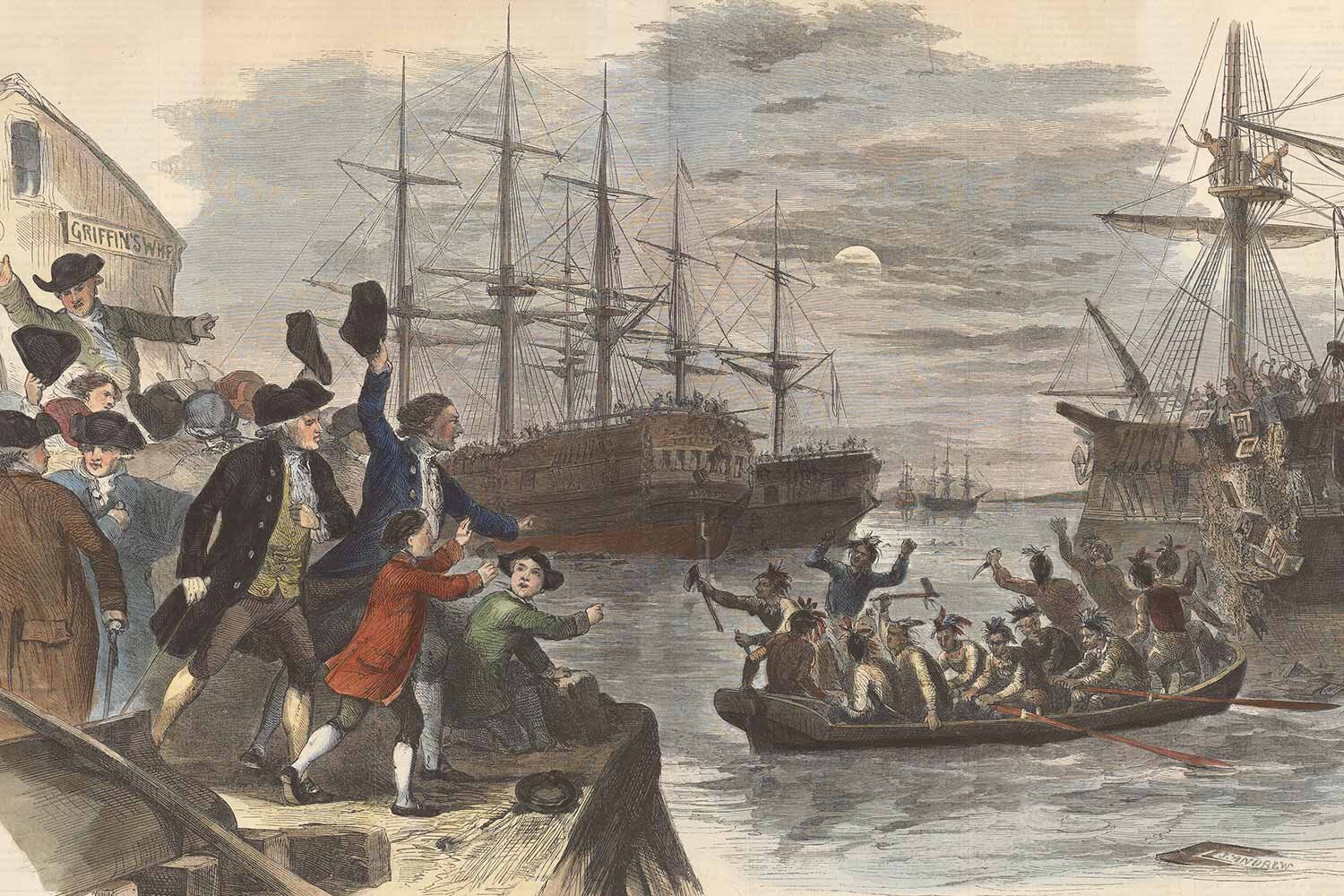
The Boston Tea Party Takes Colonists Past the Point of No Return
The Boston Tea Party is one of the most iconic moments in American history. In some ways, it sealed our fate to separate from England and become our own nation. The road that led to this watershed event began several years earlier with the Townshend Acts.
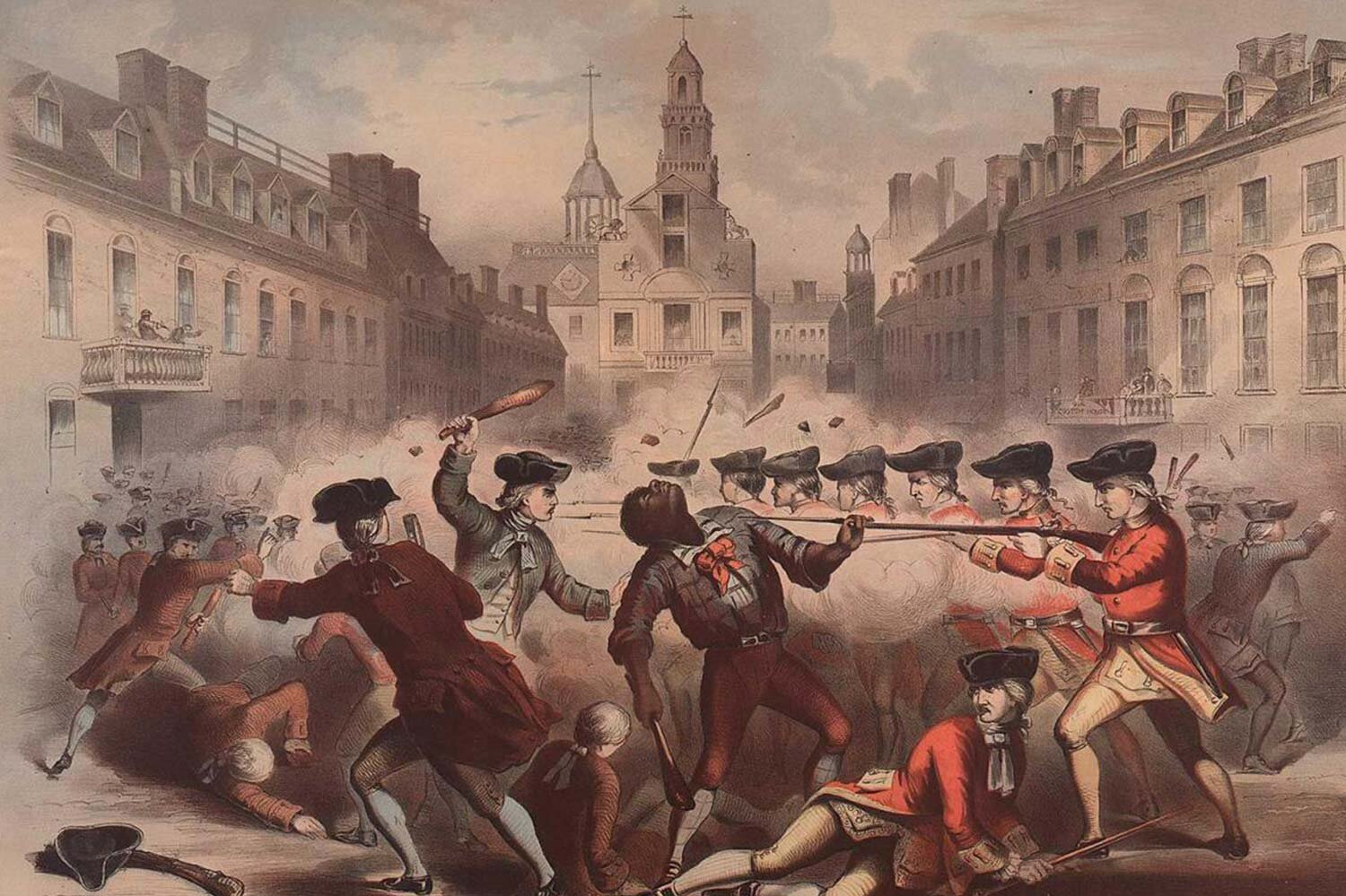
Aftermath of the Boston Massacre
The violence on the evening of March 5, 1770, in Boston is known to us today as the Boston Massacre. It was an unfortunate incident that left five people dead and growing anger between American colonists and leaders in England.
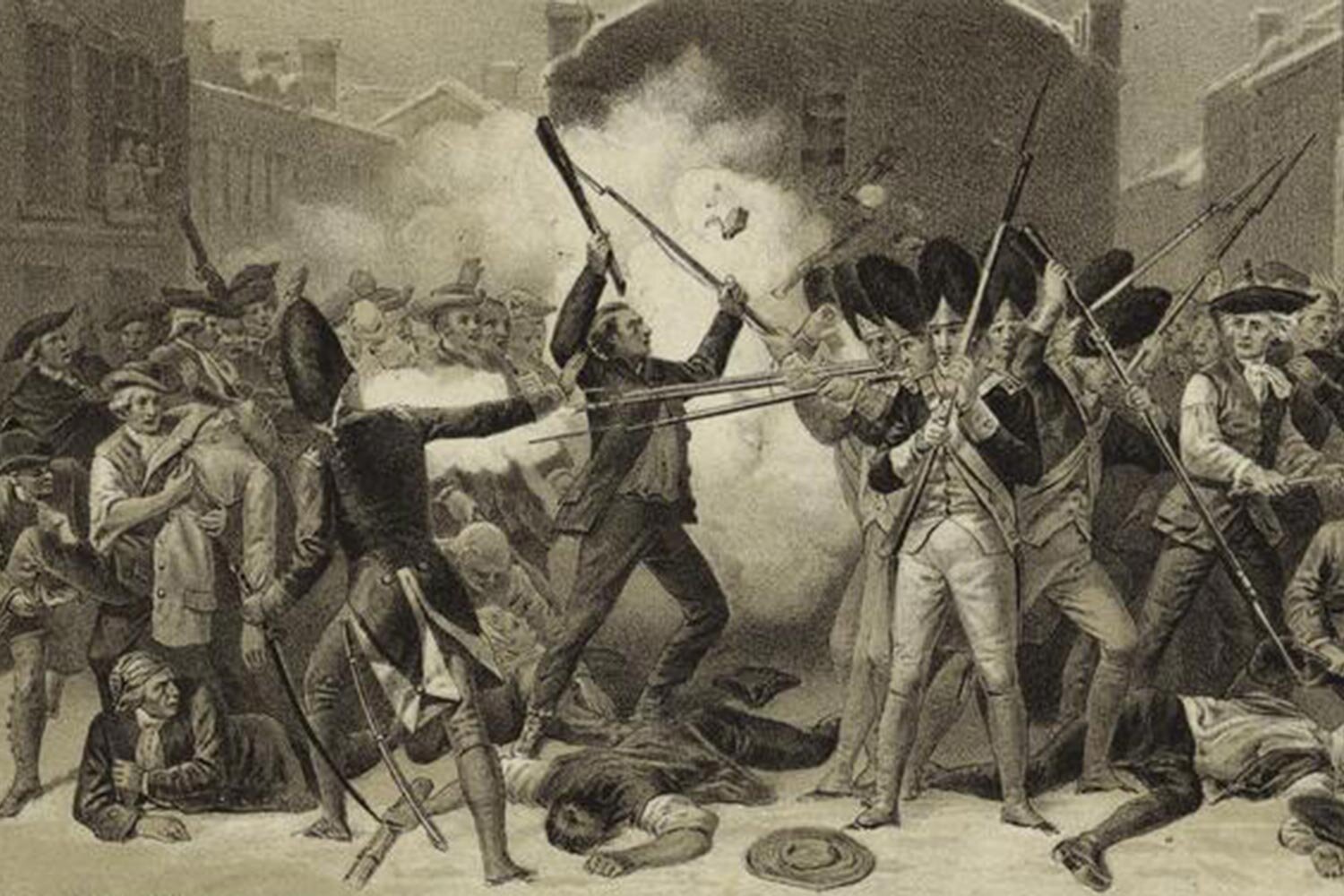
Mob Violence and the Boston Massacre
The Boston Massacre was a sad, tragic affair in colonial America and the facts surrounding the event are little understood today. It is a lesson in the danger of mob violence and how matters can quickly get out of hand when leaders do not act responsibly.
Fort Ticonderoga: A Key Component in America’s Quest for Independence
Fort Ticonderoga in upstate New York is arguably the best-preserved fort from the 1700s in North America. It was the site of several engagements in both the French and Indian War and the American Revolution. Its military significance is matched only by the natural beauty that surrounds the site.
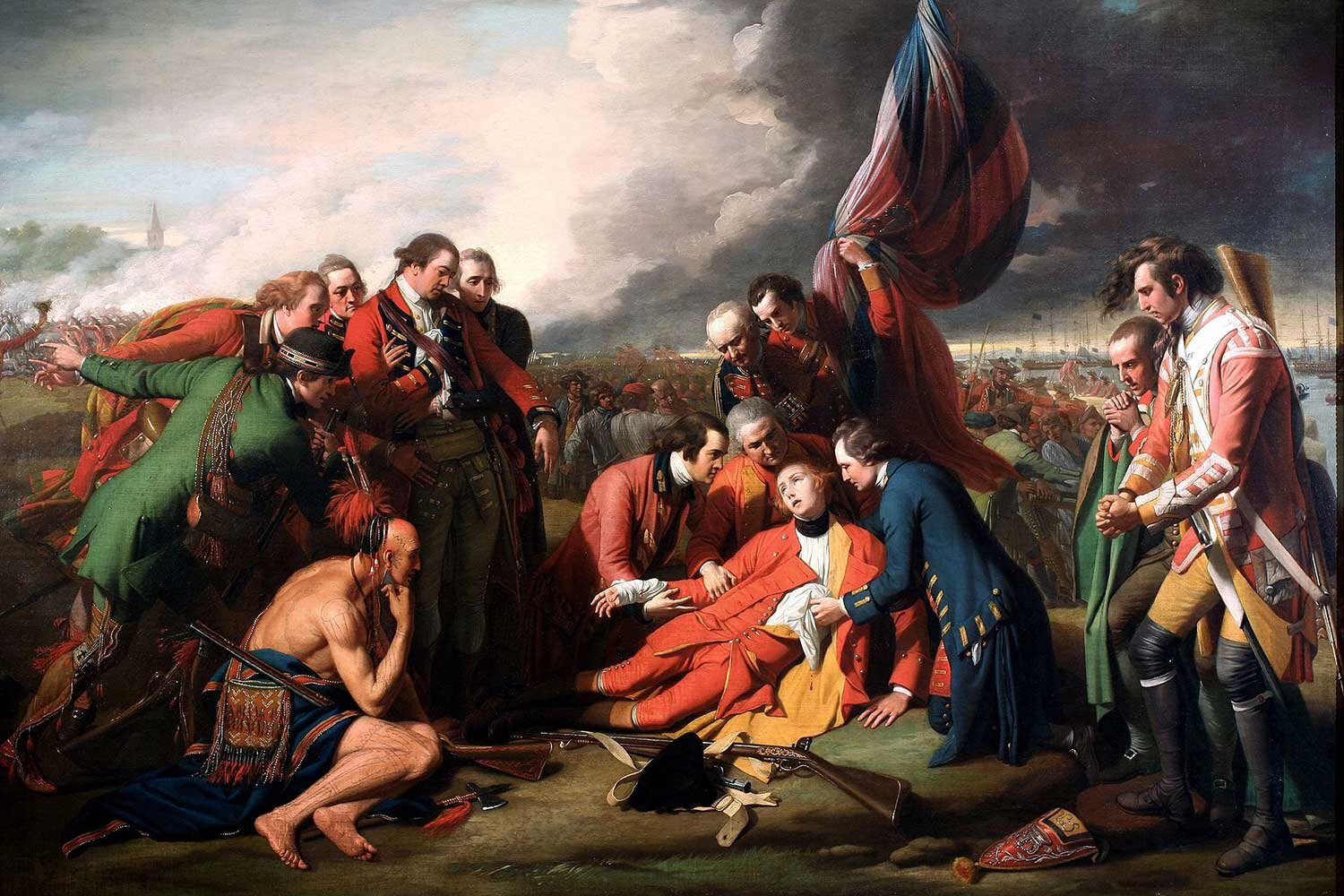
The French and Indian War: Fighting for Control of North America
The French and Indian War was fought between England and France in the mid-1700s over which nation would control North America. The consequences of that conflict led directly to the American Revolution.
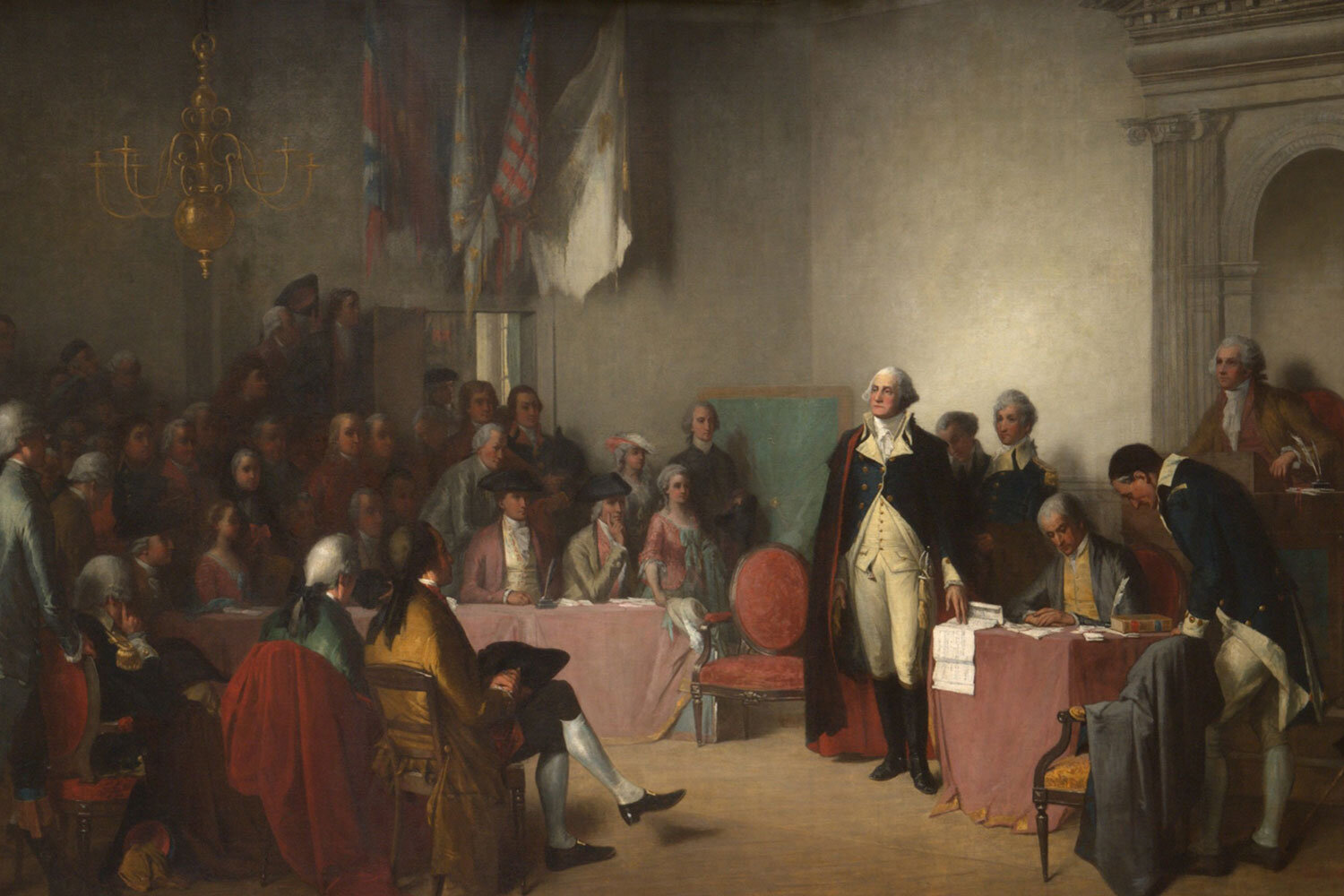
The Newburgh Conspiracy: George Washington Resists a Chance to Be King
The Newburgh Conspiracy represents a time when our nation came closest to deviating from our core revolutionary principles of representative government with civilian control of the military. Because of a weak Confederation Congress and unhappiness within the officer ranks of the Continental Army, the stage was set for our new nation to drift into a military dictatorship or monarchy.




